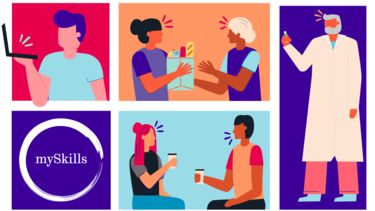How to structure and write lab reports
This page will help you to structure and format a lab report, also known as a scientific report.
What is a lab report?
Purpose
Lab reports, or scientific reports, are the primary vehicle used to disseminate and communicate scientific research methods across science and engineering disciplines.
They are structured and formulaic, to make it as easy as possible for a reader to understand the background, aims, methodology and findings of a particular experiment or technique.
Lab reports usually follow very closely prescribed formats. It's essential that you pay very careful attention to the specific guidelines issued with your experimental brief.
Sections of a lab report
Typically, a lab report is broken down into discrete sections, separated by subheadings. These will include the following:
- an abstract, outlining in brief what was done and what was found
- a point-by-point description of the experimental method followed (a bit like a recipe)
- a clear presentation of all of the results observed, some of which may be placed in an appendix to the main report
- a discussion of the results
- a brief conclusion and references
Language
Lab reports are written in a neutral and objective tone and are kept as short, concise and to the point as possible.
Lab reports should not have complicated language, which might impact on the clarity of their information.Explore our interactive self-study materials on lab report writing, including an example lab report from psychology.
Scientific Writing and Lab Reports Workshop: Book here
Structuring a lab report
Abstract
Summarise the entire report: it should be interesting, easy to read and concise. The abstract is usually the last part of the report that you write.
Introduction
Establish the reason or context for doing the experiment. It might help to think of your introduction as a funnel.
Use a funnel structure to start broad and focus down to the specifics of your research including the aims/objectives and hypothesis for testing.
Methods
Provides a descriptive protocol of your experiment so it could be replicated by another researcher.
Your methods section should be written avoiding the first person and using the passive voice where possible (ie ‘a sample was taken’, not ‘I took a sample’). Reproducibility of methods is the foundation for evidence-based science so make sure your methods are clear enough that someone else could follow them.
Results
Present your data using tables or graphical representations as appropriate.
Discussion
Interpret the results and explain their significance.
Reverse the funnel by considering the specific results from your experiment and their place in a wider context, by considering:
- What do they mean?
- What applications do they have?
- What recommendations can you make?
- What are the limitations?
- What gaps remain for further research?
Conclusion
Restate your main findings and key points from the discussion.
References
List the references to existing literature drawn on in your report to strengthen your arguments.
Appendices
Contains any material that is too large to be included in the main report, but which contains useful information which underpins the report. This may include more detailed data sets, copies of questionnaires used, details of equipment set up and calibration, or detailed calculations.
Use our lab report template (Google Doc) to plan a structure for your lab report.
Writing numbers and presenting data
Consider the best way to present your data visually. If this is best done using a table or chart, then consider what format makes things clearest.
Make sure all important aspects of the data are included in your chart or table, including units where relevant. Don't include charts just for the sake of it – data display should help the reader understand the data.
Report the results of any statistical tests using the appropriate conventions for your subject.
For more guidance on working with data, visit our statistics web pages on data display and hypothesis testing.
Data display Workshops: Book here
Next steps

mySkills
Use your mySkills portfolio to discover your skillset, reflect on your development, and record your progress.
